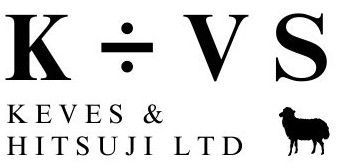Q: Should I be running a Limited Company?
A: There isn't a straight yes or no answer to this question, it depends on your circumstances, goals, exposure to risk, just to name a few factors to take into account. Below are some pros and cons and other considerations to take into account when deciding whether to incorporate or to operate as a sole trader/ partnership.
Pros
Limited Liability (I)
This is probably by far the most important reason why people incorporate. You own a share of the company (usually between £1 and £100) and this is the amount you are liable for. In the case of bankruptcy, your liability is limited to your share capital (unless you act grossly negligent).
For this reason, Limited Companies are particularly suitable for entities with a certain exposure to risk, for example businesses that own property or employ staff. It is less useful for lifestyle businesses or side hustles.
Limited Liability (II)
What works when you are running a business on your own might no longer work when you are running it with someone. As a sole trader, you are responsible for your own success and failure. If you are running an unincorporated business with someone else (a partnership), you are jointly and severally liable. In other words, if your business partner makes an unwise decision which costs the business dearly, you vouch for it with your assets, and if your business partner disappears, your firms creditors can revert back to you - and you are fully liable with all your personal assets.
Reputation
Having that Ltd at the end of your business name may lend your business more credibility, but again, it depends on what you are doing. Do you a lot of business with larger enterprises with more corporate structures? Having that Ltd at the end of your name can be an advantage. On the other hand, if you are in B2C or your target market is smaller businesses, it may not make that much of a difference.
Cons
Costs
The truth is, running a limited company is more expensive than being a sole trader. You'll need a company bank account, you'll have to file forms (some of which incur fees), you'll probably need an accountant and possibly a lawyer. And it's not only a financial matter - running a limited company is simply more time consuming than being a sole trader due to the increased administrative requirements.
Privacy
Your details will be publicly available. Various forms have to be filed with Companies House and accounts will need to be submitted. In other words, certain financial information about your business will be available for the public to inspect.
This goes hand in hand with the increased administrative burden.
The Corporate Veil
This could be seen as an advantage or a disadvantage, depending on which way you look at it. It goes hand in hand with the limited liability, meaning you and your company are two different legal entities. If someone is suing your company, they are not suing you. It's only the assets of the company that are at stake, not your own.
On the other hand, the assets the company owns are not yours, and this includes the money the company earns. Unless you personally loaned the company money in the past and the company is now repaying this, the only way of extracting money from the company is via payroll or dividend, adding to the administrative burden (and the costs).
A sole trader can just use their own bank account as they wish.
Other Considerations
Tax savings
This is a double edged sword. In some circumstances, tax savings are available, but tax legislation is not static, and neither are tax rates. It is generally not advisable to solely base one's decision on tax savings, particularly where a large chunk of these savings will be offset against higher running costs of a company.
Business Growth
Do you want to grow your business and sell it? Do you want to build up a sizeable enterprise? Even if you are a start up, it might make sense to instil good habits, to have all these practices on place when your business need them!
Your Goals
Are you running a lifestyle business or a side hustle? Unless any of the points mentioned under "Pros" are of particular significance to you, chances are that you are better off as a sole trader.
Your Personal Circumstances
This is possibly one of the most important factors. Are you organised and have the discipline to run a limited company? There is no benefit to incorporation if you know that you cannot keep up with the increased administrative burden and the responsibilities that come with being a company director. And you know yourself best.
The points above can therefore only ever be a rough guide to whether incorporation might be an option for your business. They will not replace a detailed conversations and tailored advice.
Q: Can I claim x, y or z as a business expense?
Generally speaking, if it is a genuine business expense, you can claim it, but it needs to be wholly and exclusively for business purposes. We cannot give you a list of what allowable as it depends on your sector. For example, theatre tickets may be allowable for an actor, they would not be allowable for a painter and decorator.
However, there are also a few expenses which are never allowable for tax purposes, the most important one being entertainment. These expenses can be included in the accounts, particularly for a company, but will need to be removed for tax purposes.
As a general rule, professional wardrobe is, unfortunately, also not accepted as a business expense by HMRC, even if the clothing is solely worn in a professional capacity. There are limited exceptions to this rule. An actor, for example, can claim professional wardrobe if it is used on stage. Similarly, uniforms and protective clothing are tax allowable. However, a builder's work jeans - even if exclusively worn at work - is not tax allowable.
Q: I want to set up my own business. What do I need to do?
A: First of all you need to decide whether you want to run your business as a sole trader of a limited company (see "Should I be running a Limited Company"?)
As a sole trader, there are very few administrative hurdles. You may have to register with HMRC, but it should be pointed out that not everyone who starts trading has to do so, it very much depends on the circumstances and needs to be assessed on an individual basis.
It's advisable to open a separate bank account for your business to keep track of income and expenses, but that's just a recommendation, there is no legal requirement.
It is unlikely that you have to register for VAT when you set up your business, but it's worth a thought, particularly when you're involved in importing and exporting or are dealing with VAT registered businesses - voluntary registration may be an option here. If you are mainly dealing in B2C, not being VAT registered is actually an advantage, as you don't have to charge VAT to your customers who are most likely unable to reclaim it!
If you decided to run your business as a limited company, the first step would be to set up the company. The easiest and most straightforward way to do so is to buy an off the shelf company from a provider of such companies.
You may receive a notification from HMRC to submit a personal tax return as a director of a company. If you receive such a notification, you will have to submit a personal tax return.
You are also likely to receive a notification from HMRC to submit tax returns for the company.
You also need a separate bank account in the company's name, it's best to set this up straightaway in order to have it in place once trading begins.
If you decide to run your business as a limited company, it is also recommendable to run things past an accountant and in come cases via a lawyer, particularly when complicated shareholders agreements are required. Limited companies are governed by Company Law - and running a company without expert advice is a bit like doing your own electrical installations: there are a lot of things that can go wrong that you might not even know can go wrong. And it might only blow up many months or years later - but when this happens, it usually does so with a vengeance.
We can help with a free initial consultation to point you into the right direction.
Q: I already have an accountant, but they are not a member of a registered supervisory body. I want to apply for a mortgage, but my mortgage provider does not accept my accountant's reference and insists on a reference from an accountant who is a member of a recognised professional body. Can you provide a reference for me?
No.
Q: Can I do my own accounts?
We're a bit biased here (for obvious reasons), but we also live in the real world, and in the real world, not everyone needs an accountant. If you are a sole trader with very straightforward tax affairs, it is perfectly doable to prepare your own tax return. There is no legal requirement to use an accountant - neither for sole traders nor for limited companies, but we strongly recommend to use an accountant if you are running a limited company - Company Law isn't always straightforward and intuitive, and there are quite a few things that could go wrong, resulting in additional fees, interest and penalties.
Q: How much should I pay for accountancy and bookkeeping services?
This entirely depends on your circumstances. Anything between £500 and £1,500 can be a reasonable fee. Some companies will pay less, some companies will pay more.
Tax returns start at £100 for company directors, and £150 for sole traders - this excludes bookkeeping, which we can offer for £27.5 per hour.
There are many more services which we offer. The above is meant to give you an idea where we are positioned in the market, our services are tailored to your needs, and so are our fees.

